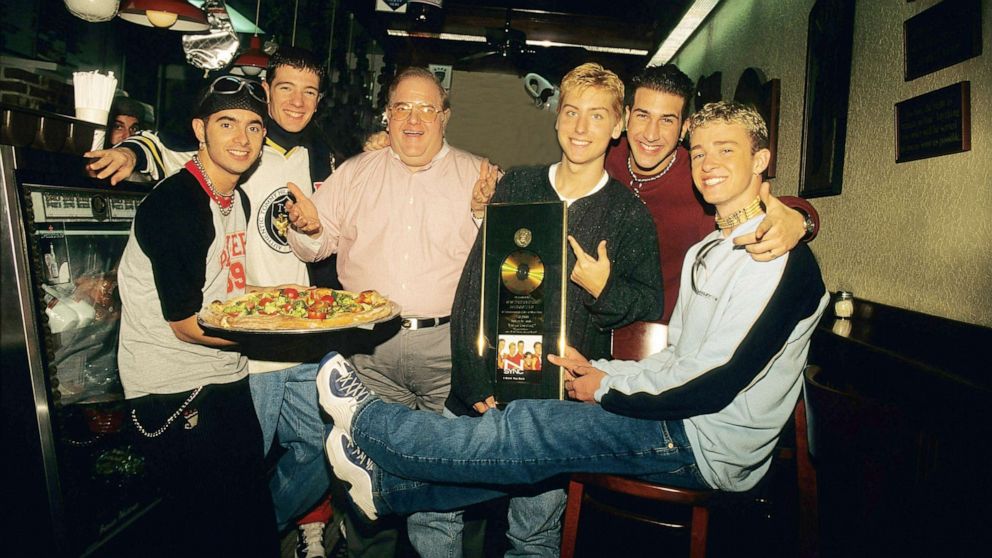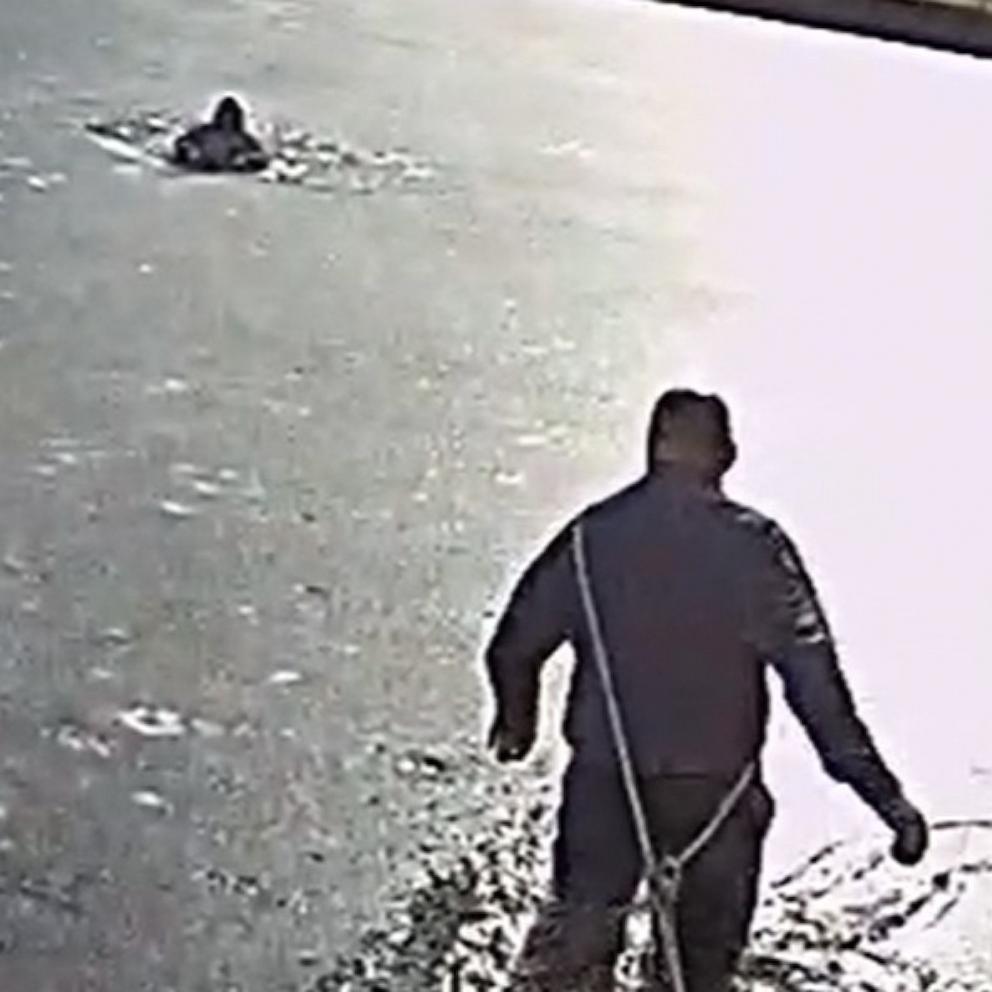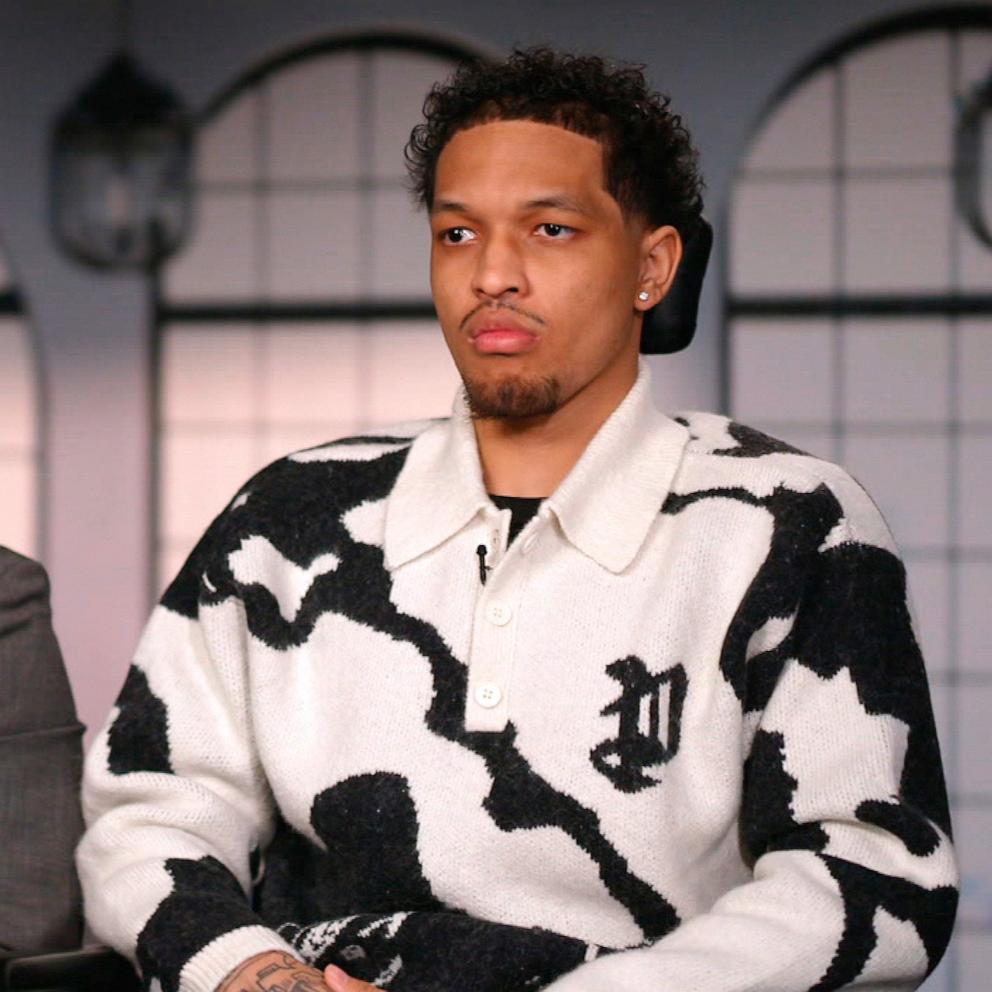*NSYNC, O-Town members on learning the truth about Lou Pearlman: 'My heart broke. ... He was a conman'
Boy bands Backstreet Boys and *NSYNC helped define an era of pop culture in the '90s.
But while they were performing for sold-out arenas and selling millions of albums, their then-manager Lou Pearlman was reaping most of the financial benefits.
*NSYNC members Lance Bass and Chris Kirkpatrick, the members of O-Town and solo artist Sean van der Wilt spoke to "20/20" about their experiences with the notorious music mogul, who they say took advantage of their trust and took advantage of them financially.
"I was in the biggest band in the world and selling millions of records…but I can't even afford my apartment in Orlando. I couldn't even get a car," Bass told "20/20."
Watch the full story on "20/20" FRIDAY, Dec. 13 at 9 p.m. ET on ABC
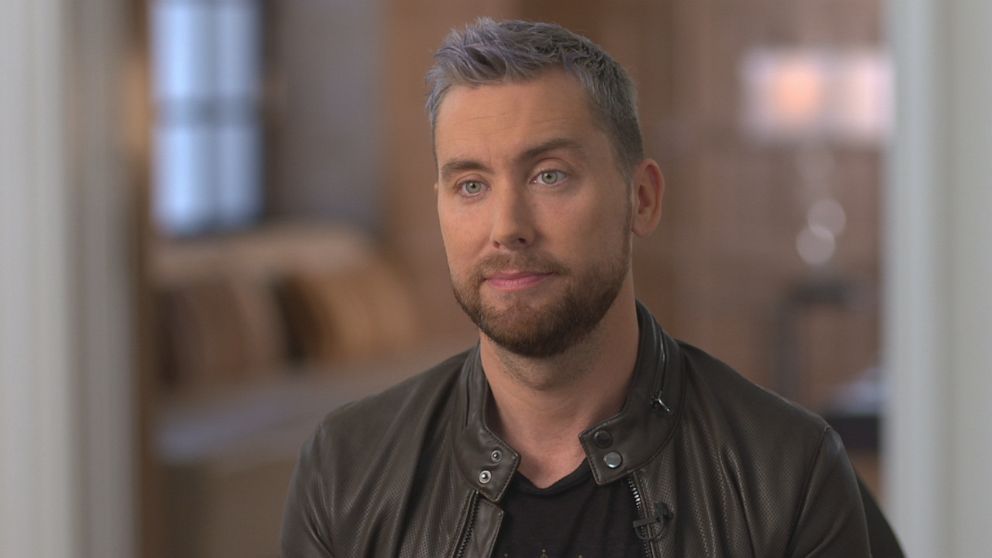
"[Pearlman] could get anything he wanted," said O-Town member Jacob Underwood. "I feel like [he was] just a miserable person who wanted all these things, and then got them, and [was] still miserable. … That's a very sick, sad man to be around."
Pearlman pleaded guilty in 2008 to conspiracy, money laundering and making false statements during a bankruptcy proceeding in connection to a multimillion-dollar Ponzi scheme involving his TransContinental empire. He died in 2016 at age 62 while serving a 25-year prison sentence.
"When I found out about the Ponzi scheme, my heart broke and was basically ripped out, because now I realized he was a conman," Kirkpatrick said.
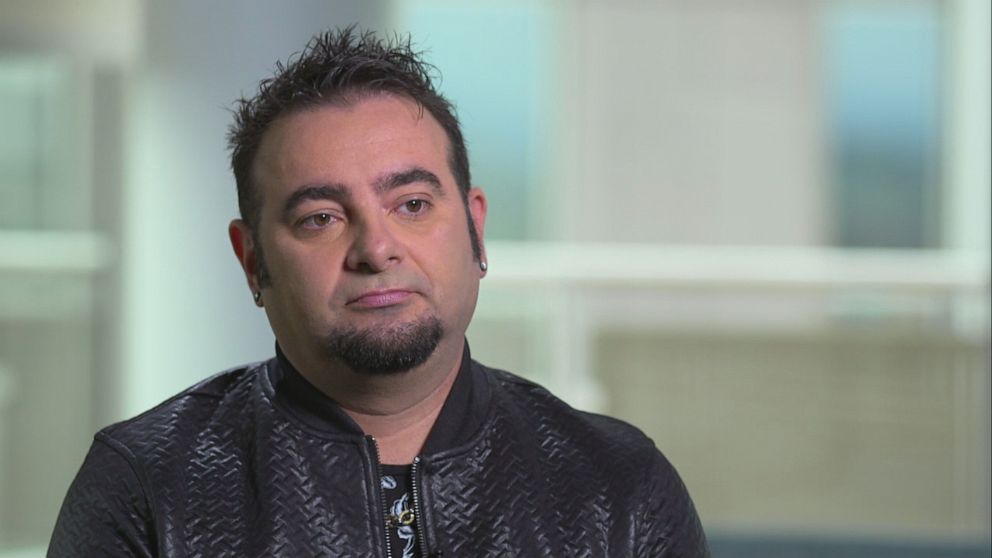
Bass helped bring the extent of Pearlman's schemes and deception to light in his YouTube Originals documentary, "The Boy Band Con: The Lou Pearlman Story," which debuted in April.
"I knew he was a scamster," Bass said. "It was one of the many jaw-dropping things that I discovered in producing 'The Boy Band Con.'"
Lou Pearlman becomes a music mogul
Pearlman was running a blimp business when he decided to start a boy band. At the time, New Kids on the Block was enormously popular.
In 1991, according to Forbes magazine, NKOTB made more money than Madonna or Michael Jackson. Pearlman was blown away by how much money NKOTB was making.
"I was invited to come down to one of their [New Kids on the Block] shows, all the [fans] screaming, I was like, 'My God, what's going on here,'" Pearlman told "20/20" in a 2000 interview. "And these girls were buying these t-shirts and hats and chains and posters. I was like, 'Man, this is exciting.' I mean, not to mention, OK, there's a tinkle into the cash register. No question about it… I said, 'I think I can do that. I think I can put a group like that together.'"
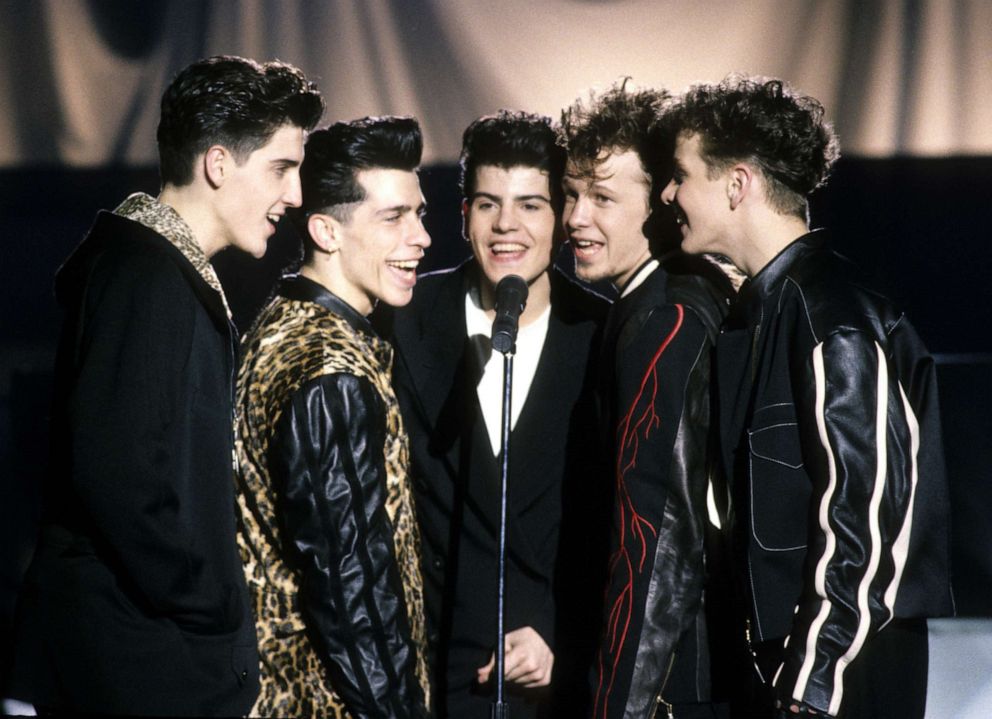
Pearlman, a Queens, New York, native, had moved to Orlando, Florida, in the early 1990s. He put an ad in the Orlando Sentinel that said: Producer seeks male teen singers that move well between 16 and 19 years of age, wanted for a New Kids type singing dance group.
"Florida is a great place to be if you want to start a boy band because there's a lot of young talent down there auditioning for roles at the theme parks," John Seabrook, a journalist and author of the book, "The Song Machine," told "20/20."
A.J. McLean, Howie Dorough and Nick Carter all auditioned for Pearlman.
"Those are the three originals and we needed five," said Jeanne Tanzy Williams, who originally managed McLean but also became co-manager of the group for a short time. "Lou Pearlman actually found Kevin [Richardson] at a Disney parade… playing Aladdin."
Once Richardson signed on, Tanzy Williams said Richardson recommended his cousin, Brian Littrell, who at the time sang at church in their home state of Kentucky. With Littrell onboard, Pearlman had his first boy band in the making.
Williams said Pearlman established a sort of boy band boot camp, providing them with choreographers, voice coaches and tutors. The boys practiced for hours in extremely hot conditions in Pearlman’s blimp hangar in Kissimmee, Florida.
In May 1993, Backstreet Boys made their first public appearance at SeaWorld. Pearlman made a tape of the performance and sent it around to people in the industry.
Johnny Wright and his then-wife Donna, who were the road managers for New Kids on the Block, saw the tape and thought the boys had something special.
"What I had heard about him prior to meeting him [was] that he was a billionaire," Johnny Wright said. "He runs around in a Rolls Royce, he owns all these blimps. He also told me he was a writer and a producer. I had no reason to doubt anything that he was telling me at that time, and he had already put the band together. I just felt like, 'Hey, we lucked into something here.'"
Johnny and Donna Wright became Backstreet Boys' managers; Jeanne Tanzy Williams says Pearlman told her she was out. The boys were sent out on a tour performing at high schools.
"They would do three shows a day in three different schools," Johnny Wright told "20/20." "They would bust out on the gym floor and the girls would lose their mind and they had never heard of them before."
Backstreet Boys had a hard time getting a record deal at first but eventually they were signed by Jive Records. Pearlman pressured them to sign a contract that was heavily weighted in his favor. In addition to being their manager, Pearlman made himself the sixth member of the band, meaning that he would reap additional financial rewards.
Pearlman defended his business practices to "20/20" in a 2000 interview, saying in part, "Backstreet Boys is a part of my life as much as it is theirs."
With a record deal signed, the boys needed to find good material. Jive had a relationship with some Swedish producers and they sent Backstreet Boys to Stockholm to work with young producer-songwriters Max Martin and the late Denniz Pop. Martin and Pop had written hits for the group Ace of Base.
Max Martin would go on to become one of the most successful hit makers of our time. He wrote the Britney Spears song “…Baby One More Time.” He co-wrote Katy Perry’s “Roar” and he co-wrote “Shake It Off” with Taylor Swift.
With Backstreet Boys in the early '90s, he co-wrote, “We’ve Got It Going On,” with Pop, which became a huge hit in Europe for the group. German audiences in particular went wild for Backstreet Boys.
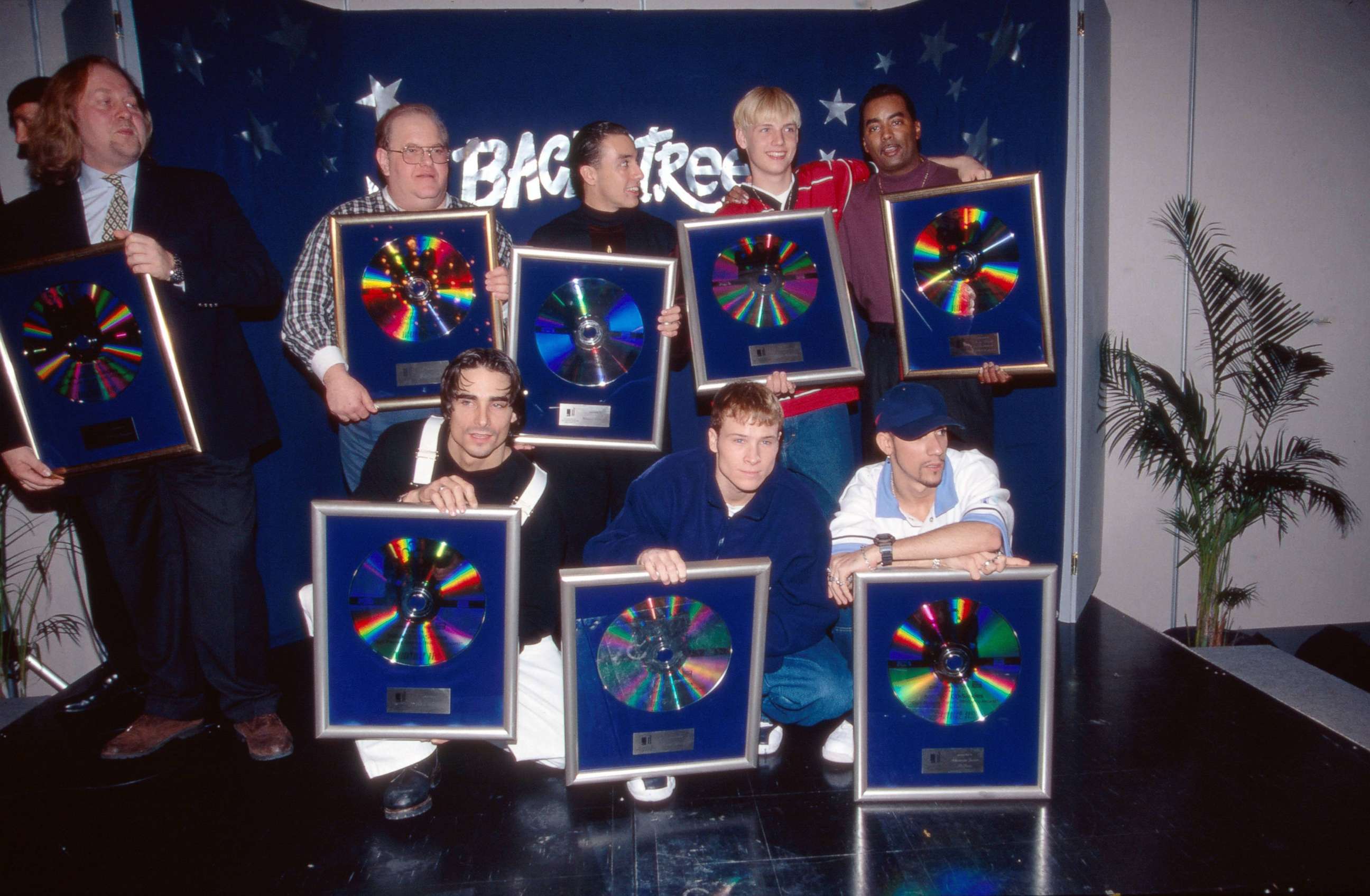
“At that point in time boy bands were big in Germany,” Wright said. “I knew if they had their best shot, it was in a market where boy bands were super successful… We used to call America, ‘no fan land.’”
Martin also co-wrote Backstreet Boys' hit, “Quit Playing Games with My Heart.” It was that song and famous music video that made the group successful in the United States. The song was No. 2 on the charts in 1997.
As Backstreet Boys' fame grew, Pearlman secretly started working on putting together his next boy band. This new group became *NSYNC and it was made up of Justin Timberlake, JC Chasez, Joey Fatone, Chris Kirkpatrick and Lance Bass.
"When I first sat down with Lou… he had it in his mind that he was ready to have another band," Kirkpatrick said. "So right away I was totally in. But he had this weird-- it was always like a secret. Like, everything was, you know, 'I'm doing this, but I'm also working with them. So don't tell anybody about this. Don't say that I'm involved with you. Don't say that you really even know me, but I'm going to try to help you guys out.'"
Kirkpatrick said he suggested Pearlman consider Timberlake for the new band.
“When I got a hold of Justin-- the first thing Justin's mom suggested was, ‘He's been working really closely with one of his friends from ‘The Mickey Mouse Club’… JC [Chasez]," Kirkpatrick said.
Both Timberlake and Chasez had been cast members on the Disney variety show, “The All-New Mickey Mouse Club,” when it ended production in 1994 and were looking for other opportunities. Kirkpatrick then suggested Joey Fatone, whom he knew from his days performing at Universal.
They had four, but Pearlman wanted a five-part harmony, so they needed one more.
“We needed to find the bass,” Kirkpatrick said. “Justin's vocal coach had called and said, ‘I've got this kid out of Mississippi and I want you to hear him.'"
That kid was Lance Bass.
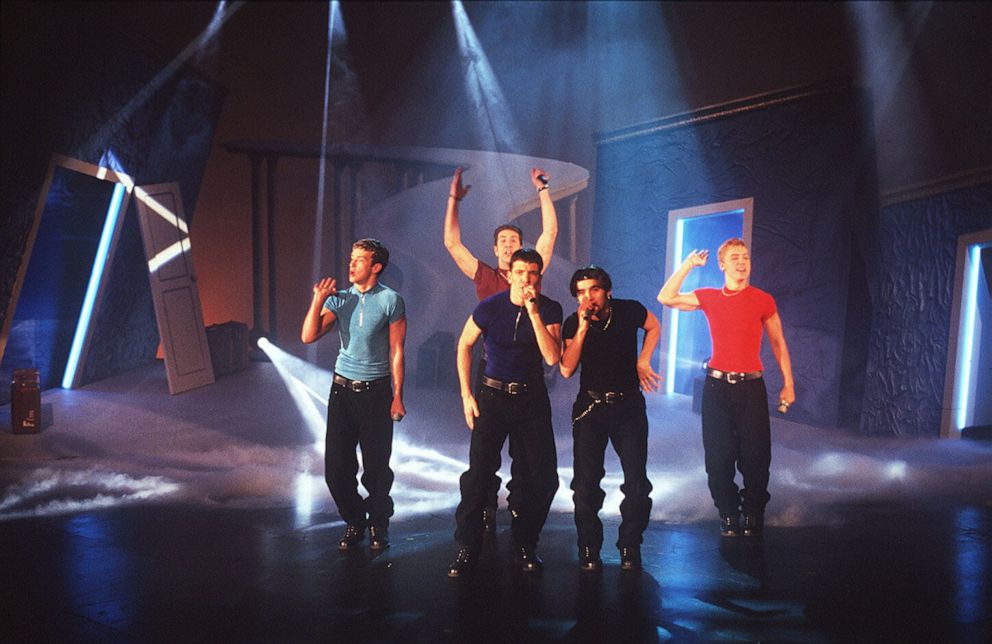
"My love of music really began [with] singing in my church," Bass said. "In Mississippi, no one ever dreamt of being a successful musician. It just was kind of out the cards for someone like me."
Bass was a sophomore in high school when he got the call that he said changed his life. He said Pearlman and Timberlake asked him to fly to Orlando to audition -- it was Bass' first time on a plane.
"I arrive at baggage claim, and there's 14-year-old Justin Timberlake sitting on the baggage belt looking really cool and sly, and I'm like, 'Wow…this kid's cool,'" Bass said. "Then you have Lou Pearlman. And they pull up in…a limo and a Rolls Royce, and that's how I'm introduced to this whole world."
Bass said he instantly liked Pearlman after meeting him for the first time.
"When you meet Lou you immediately trust him for some reason. He had…a jolly personality that you…felt like he was family," Bass said. "And when you see Lou…with his Rolls Royces and limos and his beautiful mansion…you trusted that he knew what he was doing just because of all the things he had."
As he had done with Backstreet Boys, Pearlman put the *NSYNC members into a boot camp of sorts with choreographers, voice lessons and tutors. Bass said they would practice dance moves for hours in Pearlman’s blimp hangar, which Bass says would get incredibly hot.
"And at that time…Lou Pearlman funded our group," Bass said. "So he rented us our house, so we didn't have to pay for rent. He would pay for dinners when we would go out for dinners… He's family to you. He's taking care of you."
*NSYNC made its first public appearance at Disney’s Pleasure Island in October 1995. Word got back to Johnny Wright who was touring with Backstreet Boys in Germany that Pearlman had another band.
"I called Lou and I was like, 'You have another boy band I don't know about?' He was, 'No, no, no.' He goes, 'This kid Chris Kirkpatrick…wants to put a band together and he just comes to me every once in a while to ask for some advice, but I got nothing to do with that band,'" Wright said.
"Backstreet Boys...were worried about *NSYNC. They were actually concerned…they were going to put them out of business," Seabrook said. "So when Backstreet Boys found out that Lou Pearlman was the manager behind their greatest rival…they were outraged."
Pearlman started TransContinental Records, an indie label. However, it was still in its infancy, so he needed a major U.S. record label for distribution -- a feat that would prove difficult.
"Every record exec out there turned us down," Bass said. "They were like, 'Nothing like this would ever work in America. This is way too cheesy.'"
"Our clothes were just horrible," he added. "They were always just oversized. No one really cared. There was no stylist that came in and was like, 'Oh we're going to do this and we're going to fit you.' No, it was, like, 'Here's a rack of stuff.'"
At the time, boy bands were still in demand in Germany. So, following the same formula as Backstreet Boys, *NSYNC went to Europe to perform and worked with Max Martin, who co-wrote *NSYNC’s first two hits, “I Want You Back” and “Tearing Up My Heart.”
“In Europe, we were on the cover of every magazine,” Bass said. “And then when we released our first single and album, it blew up. It was huge.”
Bass said *NSYNC’s trajectory in the U.S. changed once the group performed at a Disney concert that Backstreet Boys had turned down. The Disney Channel played the concert over and over.
“The Disney Channel concert really changed our career,” Bass said. “It was incredible, and that one gig right there, to me, is what made us in America.”
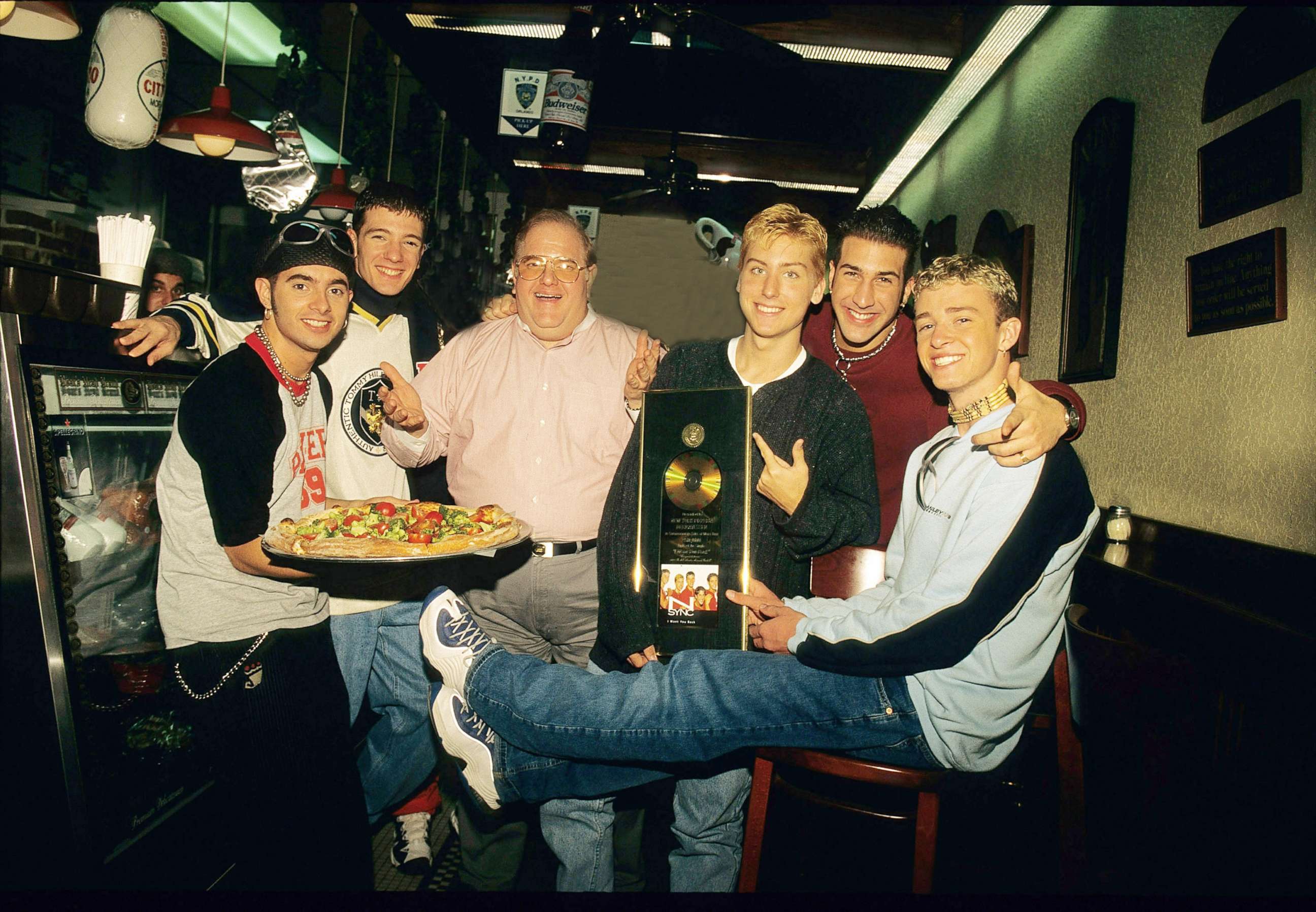
But while *NSYNC's star was rising, Bass said Backstreet fans "were mad. They were like, ‘Oh we can't have another group like this.’ So it was a hard start for us…and that's when the rivalry started with the fans.”
In 1998, *NSYNC had two albums on the charts -- their self-titled debut album and their Christmas album, “Home For Christmas,” which featured the song “Merry Christmas, Happy Holidays.”
“To this day, I think the Christmas album's one of my favorite albums that we've ever done,” Kirkpatrick said. “It's timeless. And as soon as that thing came out, then it's more videos and next single on the record. And we were just holding on for the ride.”
“We'd get so busy we didn't have time to cut our hair or to put bleach in our hair,” Bass added. “So that's when I started just kind of getting this bleach and putting it in my hair and just putting my fingertips in it, and that's how the frosted tips were born.”
Backstreet Boys, *NSYNC sue the man who launched their careers
In the background, Pearlman was using the success of Backstreet Boys, and later *NSYNC, to not only lure new talent, but also to use the bands’ enormous success to entice people to invest in Pearlman’s TransContinental empire, which eventually he claimed included the record label, plus an airline, a film and music studio, talent and travel agencies as well as restaurants and real estate.
"We never ever flew on a TransContinental airplane," Bass said. "We would fly to different places over in Europe, and we'd always be on these Delta flights, you know, in coach. And I always thought it was weird that someone that was in the airline industry couldn't help us out a little bit [with] getting to places."
Meanwhile, after years of touring, selling out arenas and promoting albums, both Backstreet Boys and *NSYNC were starting to wonder when they were going to get paid.
"With all the success you would think that we were making hand-over-fist money and we were printing money and whatever, and it just wasn't the case," Kirkpatrick said.
In 1998, Bass and Kirkpatrick said Pearlman flew them and their families out to Los Angeles for what he called a check presentation ceremony and a celebration dinner. Both said they went into the dinner thinking that they were about to become millionaires.
"At the end of the dinner, we have all these envelopes sitting in front of us… I knew my life was about to change," Bass said. "I knew we had worked so hard. So I knew what that check should be or I was hoping would be…in the best of worlds, $1 million would've been, like, 'Oh my [God].' That's what I thought we deserved."
But when they opened their checks, Bass said the amount was for $10,000 each.
"I didn't want to seem ungrateful because at that point, yes, $10,000 was a lot of money," Bass said. "We went back to the hotel room and that's when it all just hit me. I was so disappointed. And I ripped up the check. Like… I knew something was wrong."
The band had Chasez's uncle, who was an attorney, look over their contracts, and he called it "the worst contract I've ever read in my entire life,'" Bass said.
That's when Bass said *NSYNC discovered they had the same contracts as Backstreet Boys, where Pearlman legally had made himself the sixth member of their group, allowing him to rake in one-sixth of the band's profits, on top of taking in management fees.
After their attorneys found a small loophole in their contract with Pearlman's label TransContinential Records, *NSYNC jumped to Jive Records, the same record label as Backstreet Boys.
As a result, TransContinental Records, along with RCA parent BMG Entertainment -- the label that distributed *NSYNC albums -- hit the band with a $150 million breach-of-contract lawsuit in an effort to stop the move and stop them from performing or recording using the name *NSYNC, among other demands.
"[Pearlman] knew that we were able to sign with a different label but he still owned our name. He was the sixth member of the group and he owned the name *NSYNC. So he took our name and sued us.... so we could never use it," Bass said. "And that's why we ended up in court."
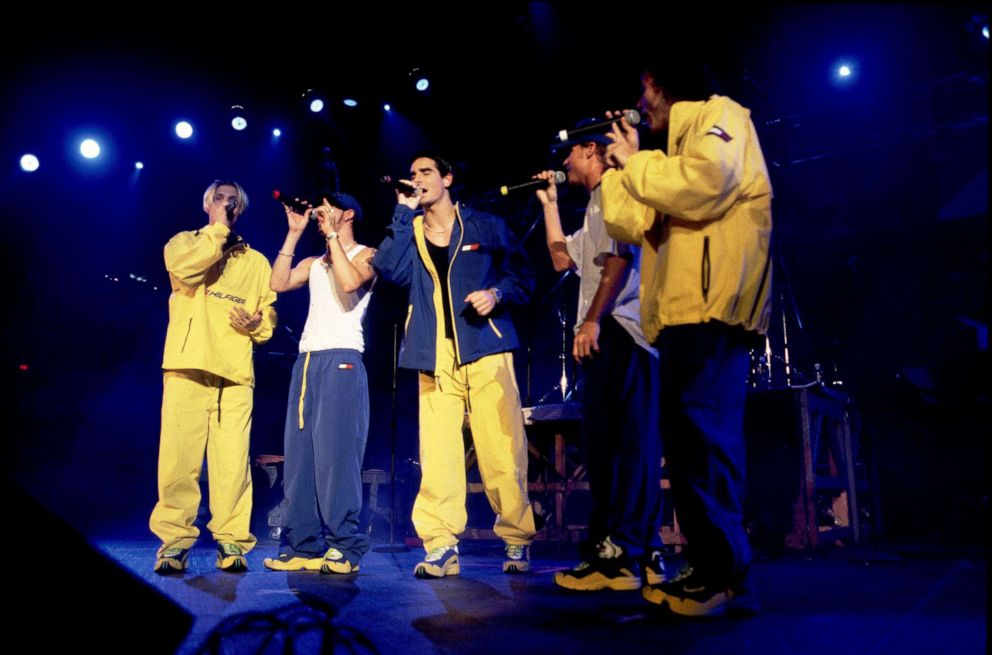
In 1998, Backstreet Boys filed a lawsuit, claiming that they had only received $300,000 since 1993 while Pearlman had made $10 million. Pearlman defended his business practices, saying that he had spent $3 million on Backstreet Boys to launch their careers before the band had been profitable.
Pearlman was ousted as Backstreet Boys' manager but the settlement agreement they reached gave him $30 million and he continued earning a portion of the band's profits.
In 1999, *NSYNC, Pearlman and BMG Entertainment reached a settlement which included giving *NSYNC members the right to control their name. As a result, Pearlman was also out as their manager.
The following year, in early 2000, *NSYNC its third album, “No Strings Attached."
“'No Strings Attached’ just became the theme,” Kirkpatrick said. “It became our battle cry of, ‘We don't owe anybody anymore… we have no ties to anything but each other … and our fans."
The making of O-Town
Despite the legal battles with his most profitable bands, Pearlman continued to seek opportunities to launch new bands and artists.
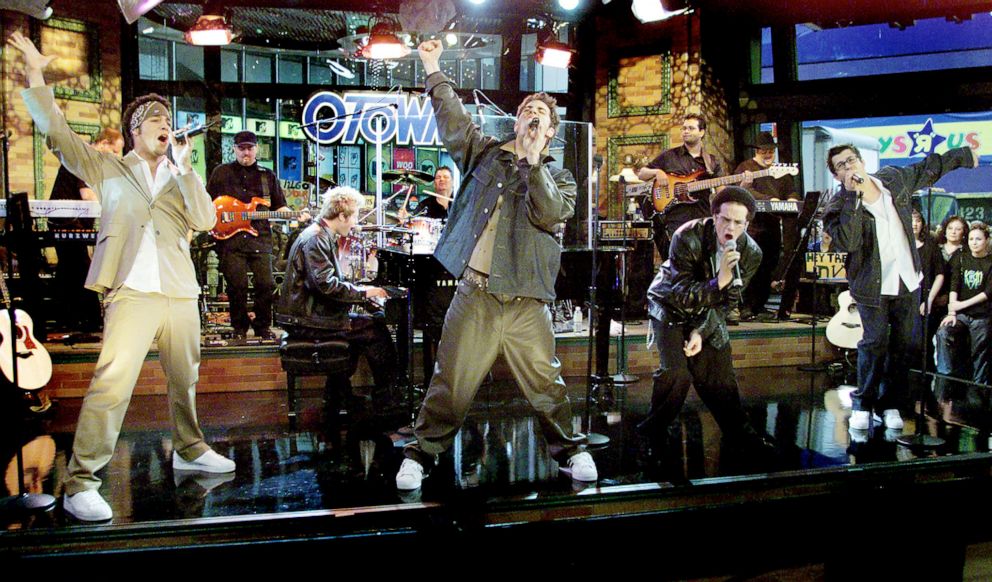
"We just thought that it was us and the Backstreet Boys and that's all that he was really focusing on right now, not knowing that he was developing tons of bands on the side," Bass said.
Pearlman went on to create a boy band called LFO, whose song "Summer Girls" peaked at No. 3 on the charts in 1999, as well as the bands C- Note, Take 5, the girl group Innosense and O-Town -- the winners of his TV show "Making the Band," a franchise that began on ABC in 2000 and later moved to MTV.
"Lou Pearlman, for all of his faults, was an amazing casting director," said Dave Holmes, a judge on "Making the Band." "He had an ear for a good voice but that was not the most important thing… The most important thing was charisma… He really saw things in people that would not blossom for years.”
But Bass said that when he saw O-Town come out of "Making The Band" in 2000, he initially felt sorry for the new group.
"Because at that point, I knew who Lou Pearlman was and I knew he was taking advantage of people and I knew what contract these guys would eventually be signing," Bass said.
Much like Backstreet Boys and *NSYNC, four members of O-Town said they also struggled with getting Pearlman to pay them. In their contract, Pearlman didn't make himself a legal member of the group but owned the rights to the band's name, which led to legal battles years later.
"He promised tour support -- we'd get a big tour -- and then the day of the tour support, no money comes in," Underwood said. "Playing with our money, not able to get sponsorship because we have to get his clearance for the [band] name, and it just became a headache from day one."
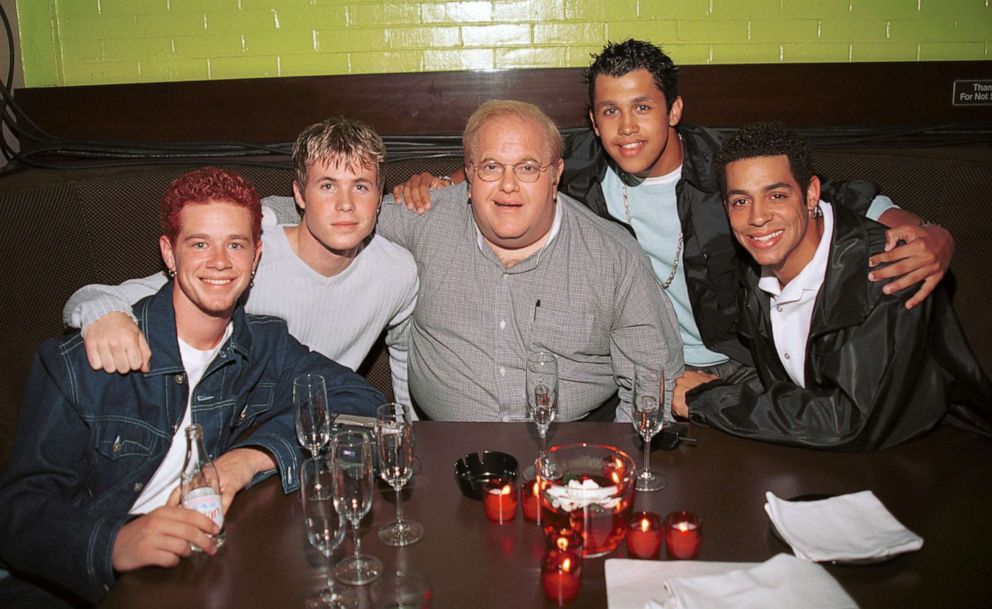
And as he'd done with Backstreet Boys and *NSYNC, Pearlman ran the boys through somewhat of a boy band boot camp. He also encouraged all of his bands to call him, "Big Poppa" or "Papa Lou."
"He was 'Papa Lou' to Backstreet and he was 'Papa Lou' to us [*NSYNC], but we couldn't tell anybody he was 'Papa Lou,'" Kirkpatrick said. "He just was this fatherly figure that we never had any worries around him because … he was the money guy."
"Some of it was really weird and awkward and uncomfortable. But, you know, for the most part, you know, it was just Lou," he added.
Rumors of Pearlman's being inappropriate with some of the young men he was managing circulated.
"The thing about Lou, there was an endearing childlike quality to him," said O-Town's Erik-Michael Estrada. "You never automatically thought that there's something devious behind the requests… Playing chicken in the pool, 'Who's going to be on my shoulders?' Yeah, 'You look like you're tired. Let me give you a massage. Let me see your abs. Are they coming in?' None of those things seemed weird at the time."
"I never saw anything until after we left," Bass said. "There was rumblings of maybe Lou was sleeping with boys to get into groups and all that. So I don't know what was real, what wasn't."
Singer and songwriter Sean van der Wilt has worked hard to build a successful career in Hollywood despite the rocky start he said he had working with Pearlman, who he says "made many advances" on him when he was signed to Pearlman's label in the early 2000s. Van der Wilt said the advances made him "uncomfortable."
"The first couple times he put his arm around -- was hugging me -- but it was in a way [that it] was just a little too close for comfort," van der Wilt said. "By the third time, I was sitting on his bed, and he joked and fell on top of me. I was like, 'Whoa, Lou,' and he was like, 'Oh, come on. We're buddies.'"
Seth Abramovitch, who writes for The Hollywood Reporter, asked Pearlman about the rumors concerning inappropriate misconduct with some of his young performers. “His explanation was that anyone whose star he actually launched were happy with him. …..If their careers fizzled, they had a grudge, and that's why they said these things about him,” Abramovitch told ABC News.
By 2006, the feds were investigating Pearlman for running a multimillion-dollar Ponzi scheme related to his TransContinental empire. In 2008, Pearlman pleaded guilty to two counts of conspiracy, one count of money laundering and one count of making a false claim in a bankruptcy proceeding. He was sentenced to 25 years in prison.
How some members of *NSYNC, O-Town feel about Pearlman today
Backstreet Boys has continued to achieve commercial success as a group. The band released a new album, "DNA," and concluded a Las Vegas residency this year.

*NSYNC went "on hiatus" in 2002. They reunited this past April, without Timberlake, to perform with singer Ariana Grande at Coachella Music Festival.
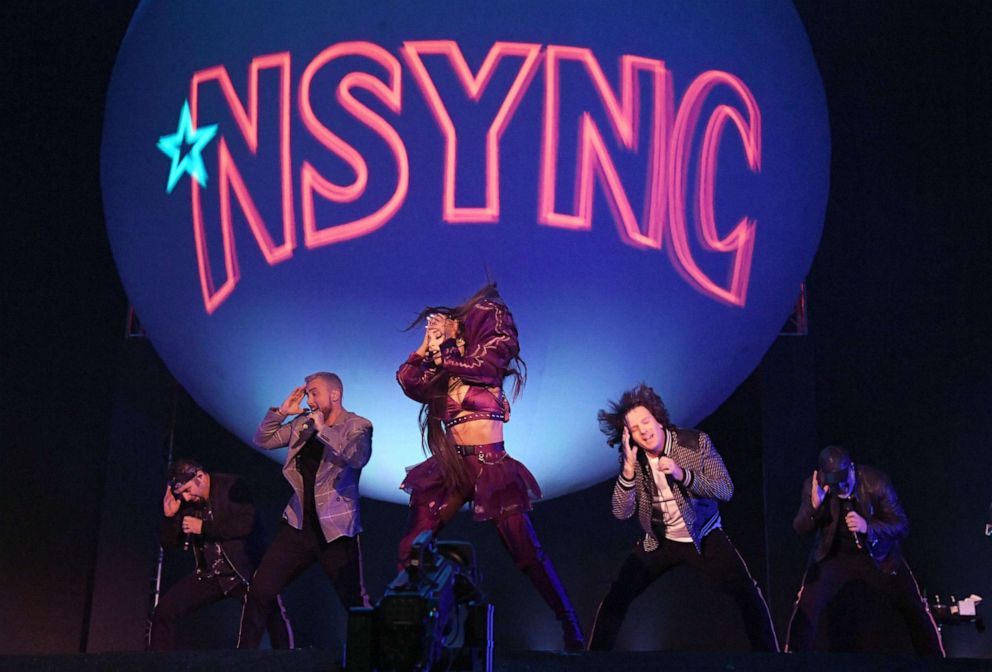
After enjoying three years of success, O-Town disbanded in 2003. Underwood said their inability to own the rights to their band's name made it "impossible" to make music or market off their success.
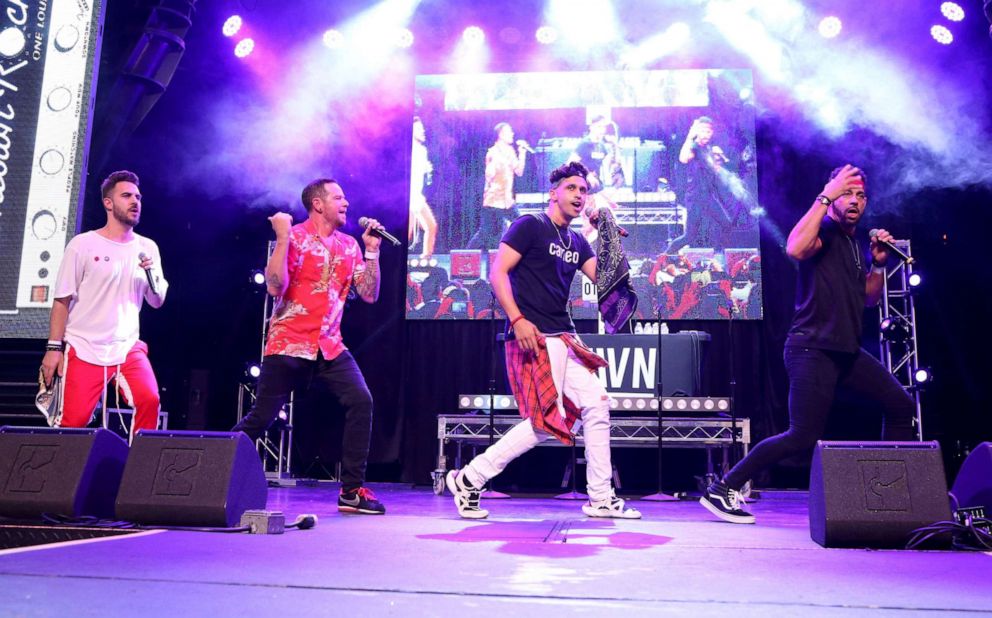
In 2013, O-Town regrouped to launch a comeback and filed paperwork in 2017 to obtain the rights to their band's name. This year, however, they faced another legal hurdle: Universal Music Group is challenging the band's claim to the name "O-Town," arguing that it's too similar to their trademarked Motown Recordings brand.
"Nobody else is paying for it or building it up -- it's us," Underwood said. "After 20 years of being a band, [the label] decides that they think that O-Town and Motown are too close of a name and that people would confuse the two."
Van der Wilt's career, though it had hit a bump, eventually started looking up again. He began working with Rihanna on a promo tour and booked a dancing role in the 2010 movie "Burlesque." Most recently, he worked with Cher as an associate choreographer and dancer, although he left that role to choreograph and appear in the ninth season of the FX show "American Horror Story." A producer on that show, he said, helped him land a choreography role on Fox's "911: Lone Star." He also just released a single called "Silence."
Van der Wilt said that although he considered Pearlman a friend, the music producer never apologized to him for everything he'd been put through, which included his getting kicked out of a California mansion that went into foreclosure due to nonpayment by Pearlman's company. Still, van der Wilt said he believes there was good in Pearlman.
"Lou did have a big heart. He did. He cared about people. It was very apparent. He [was] always hugging everybody. Everybody was his family and I know it deep down inside," he said. "I know he meant that. It's just, his way of thinking with money and wanting all the attention was crooked. That's how I feel."
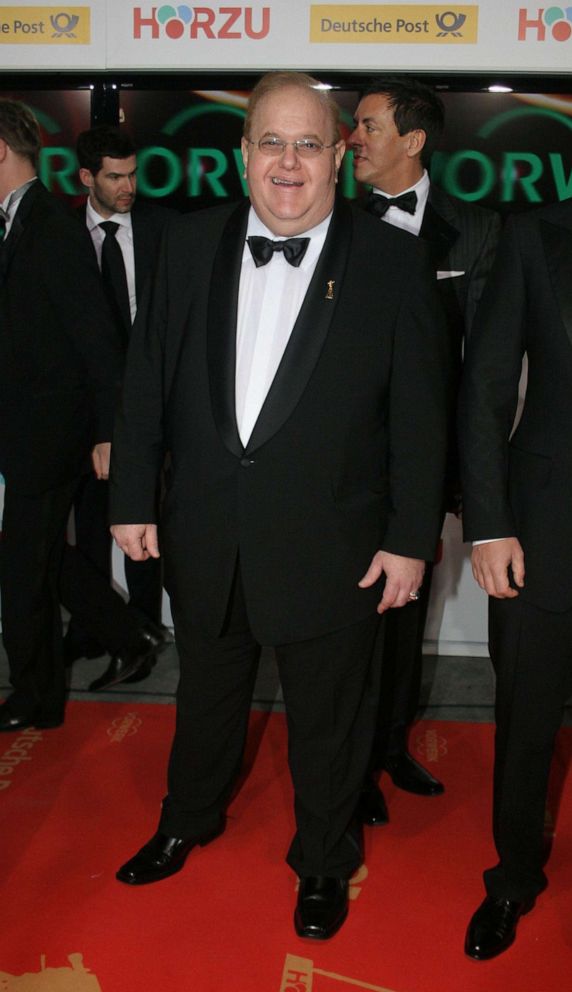
When Pearlman died of heart failure behind bars in 2016, Bass said, "I was so confused on exactly how to feel."
"I'm like, 'How could you die right now when we don't have this closure? You need to apologize,'" he continued.
"The minute…you'd start to cry, you'd start to laugh," Kirkpatrick said. "And the minute you'd start to laugh, you'd start to get angry, and the minute I was angry, I started to feel bad for the whole thing that happened. It was the most confusing moment probably that I've ever had."
"I know that a lot of the other guys are bitter," he added. "I understand that because like I said, it's so many emotions. But…I wouldn't be where I am if it wasn't for him… and it sucks."
Looking back now, Bass said he feels glad to have known Pearlman.
"There's so many life lessons that you learn from everyone else's mistakes -- from your mistakes," Bass said. "He helped start my career. He funded it… I don't know where I'd be without him. So you have to give him that credit."
But others, like O-Town members Underwood and Dan Miller, say they feel differently.
"I don't feel like [Pearlman] is responsible for my career. But I know that there's other members of my band who feel conflicted because we have a career because of this band that he put together," Miller said. "But he also is just a disgusting human being on so many levels."
"The Ponzi scheme victims… We were all in it together. We were all abused by the same person," Underwood added. "Hopefully you don't feel as lonely…as you did…because you have a big family now. We're all connected."
